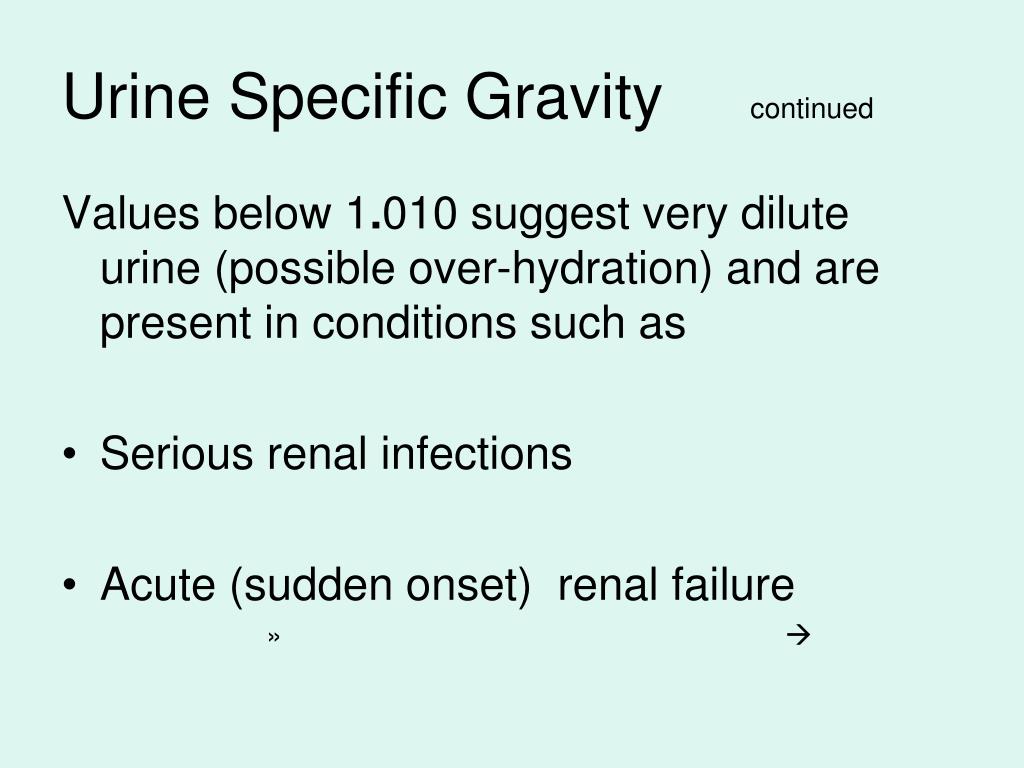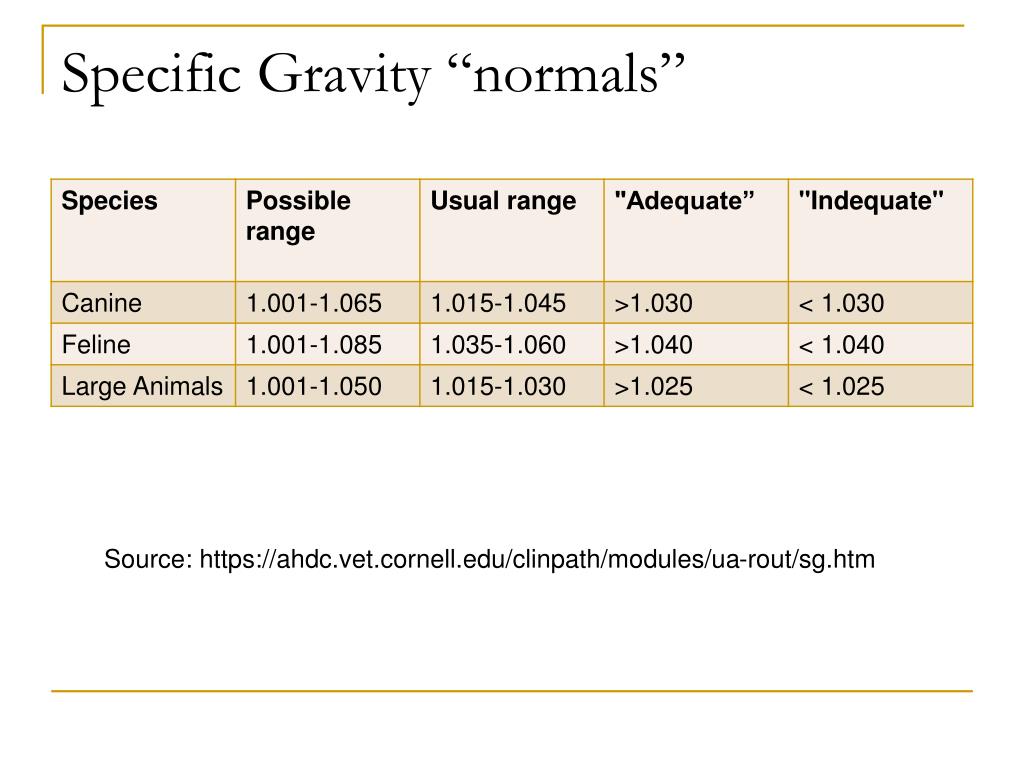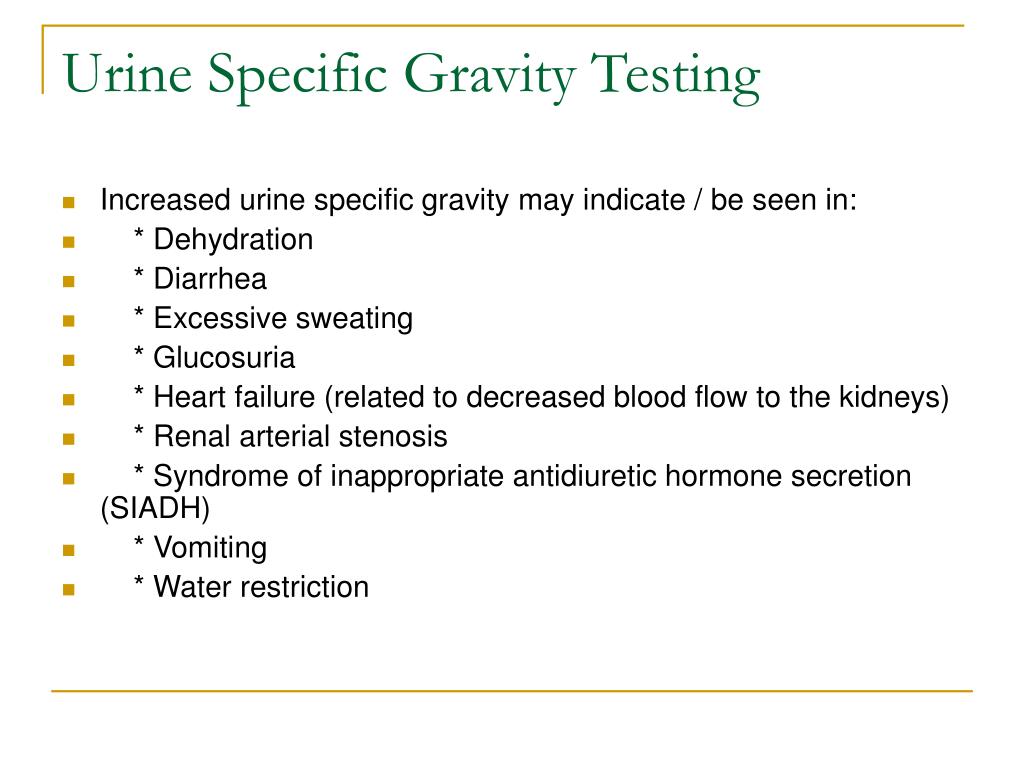

Kidney stones tend to develop in a highly acidic or alkaline environment. A urine pH level test looks at the acidity or alkalinity of a urine sample. Oftentimes, doctors will also check the pH of your urine. The urine density test may also be performed if a doctor suspects a complicated urinary tract infection, high blood sodium level, low blood sodium level, or excessive urination. SIADH (syndrome of inappropriate antidiuretic hormone secretion)Ībnormal or decreased urine specific gravity could be due to the following:.Below we outline various causes-some are common, while others are rare: Diabetes, heart disease, high blood pressure, Berger’s disease, Hodgkin’s disease, leukemia, and lupus can cause elevated levels of protein in the urine.Ībnormal or increased urine specific gravity tests can be the result of many different health issues. Some conditions allow proteins to pass through the filters in kidneys, producing protein in the urine. High urine specific gravity can be an indication that you have extra substances in your urine-these substances could be glucose, bilirubin, red blood cells, white blood cells, crystals, bacteria, or even protein. It is important to keep in mind that precise measurement of urine concentration can’t be determined by just looking at the color. Urine specific gravity levels will be lower if your urine is lighter and you are well hydrated. In order to understand urine concentrations, just think about how much darker your urine looks if you haven’t had anything to drink for some time. Discussing specific gravity units with your doctor can help give you a better understanding of what is and is not acceptable. If you have a specific gravity of urine under 1.030, it means you are still within the normal range. When it comes to urine specific gravity levels, each lab sets standards however, many labs set a normal urine specific gravity range between 1.020 and 1.028.

This test helps diagnose certain conditions. There are also osmolality tests that are sometimes used to determine how the kidneys dilute and concentrate-osmolality is the index of concentration. Home urine tests can be conducted but run the risk of becoming contaminated. Once your sample is sent off to the lab, a technician will likely use a refractometer to project light into the sample to determine density, as opposed to using a dipstick. Your doctor will give you a cup to collect the urine sample, along with antibacterial wipes to clean around the urethra which will reduce the chance of bacteria contaminating your sample. For the urine specific gravity test, at least one to two ounces of urine are needed. That sample is typically tested with a dipstick method. When you visit your doctor for a regular check-up, usually a urine sample is required. It is really no different than giving a regular urine sample. Many people worry that the test will be painful or uncomfortable, but that is not the case. Certain foods do have to be eliminated from the diet, including beets, blackberries, carrots, fava beans, and rhubarb. It is also advisable to eat a well-balanced diet leading up to the test. If you have recently had intravenous contrast dye for an X-ray or MRI, you will have to wait at least three days before having the urine density test. You will be asked to stop taking any medications that might interfere with the results, including those that contain sucrose or dextran. Preparation for the urine specific gravity test is simple. This can give doctors a good idea of how well the kidneys are compensating. In some situations, urine density will be tested several times in one day. It can be useful for doctors who are trying to figure out if you are suffering from certain conditions. Testing urine specific gravity is the quickest way to determine if your kidneys are compensating for some sort of problem. When you undergo a urine specific gravity test, you’re required to exclude certain things from your diet, and you may have to temporarily stop taking certain medications. It could also simply mean that you aren’t drinking enough water. Urine that is too concentrated could signal that your kidneys are not functioning properly.

Basically, the test compares the specific gravity of urine to the density of water. A urine specific gravity test-or urine density-may be performed if a doctor suspects you are dehydrated or have a condition such as heart failure.


 0 kommentar(er)
0 kommentar(er)
